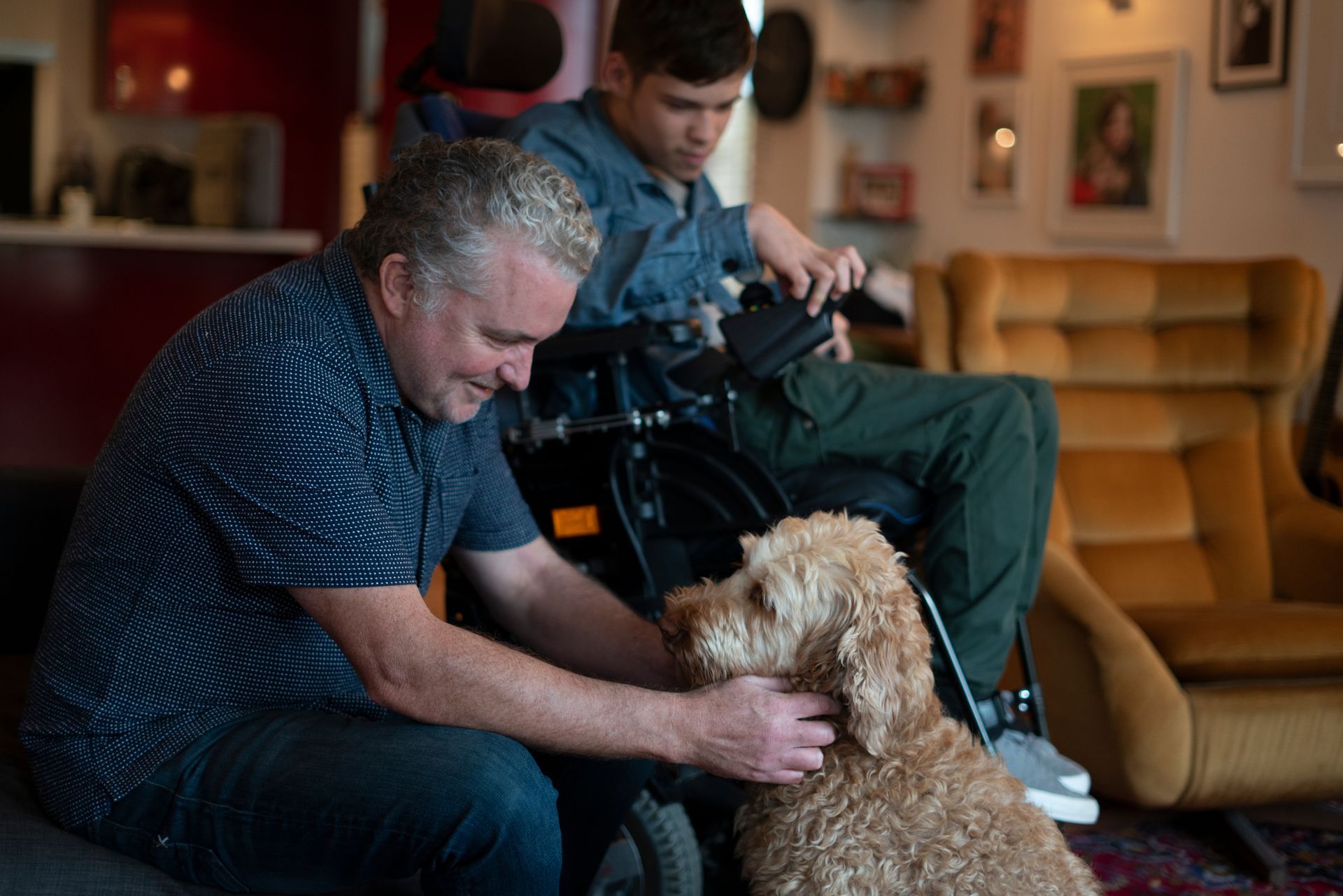Paws for Thought: The Therapeutic Power of Pets

Across recent team discussions, Behaviour Support Practitioners have been diving into a heartwarming and increasingly relevant topic: the therapeutic benefits of pets, particularly for older participants. Whether it’s the wag of a tail, the purr of a cat, or the gentle nudge of a nose, animals are proving to be more than just companions—they’re powerful contributors to emotional wellbeing.
For many older participants, pets offer a sense of purpose, routine, and unconditional love. They can help reduce feelings of loneliness and isolation, which are common among those living alone or experiencing limited social interaction. The simple act of caring for a pet—feeding, grooming, walking—can foster independence and boost self-esteem.
Research and anecdotal evidence alike show that pets can:
- Lower stress and anxiety levels
- Improve mood and emotional regulation
- Encourage physical activity and mobility
- Provide sensory comfort and grounding
- Support social connection through community pet events or casual chats with fellow pet lovers
One Behaviour Support Practitioner shared a story about a participant whose mood and engagement dramatically improved after adopting a rescue dog. The participant began taking daily walks, chatting with neighbours, and even attending local dog meetups—activities that had previously felt out of reach.
Interestingly, the benefits aren’t limited to dogs and cats. Birds, rabbits, guinea pigs, and even fish have been shown to offer calming effects and companionship. For participants in supported accommodation or those with limited mobility, low-maintenance pets can still provide meaningful interaction and joy.
Practitioners are now exploring ways to incorporate pet therapy into behaviour support plans, including:
- Facilitated visits with therapy animals
- Support to adopt or foster pets
- Collaboration with local animal shelters and pet programs
- Education around pet care and responsibilities
Of course, every participant’s needs and circumstances are different, and careful planning is essential. But the growing interest in pet-based therapeutic strategies reflects a broader commitment to holistic, person-centred support.
As one practitioner put it: “Sometimes the best kind of support has four legs and a wagging tail.”
Check out our photos of all the pets among the helpz family.
News & Insights
Check Our Latest Resources


























